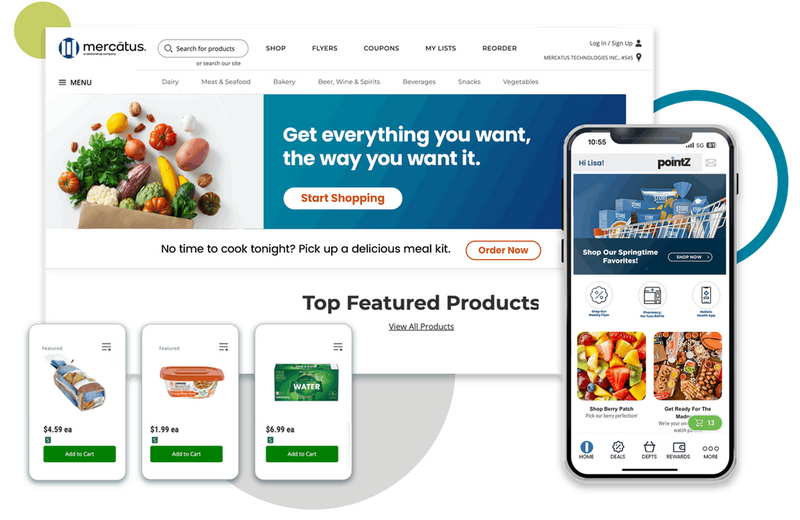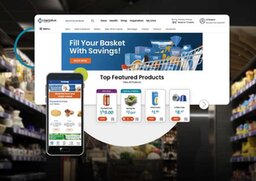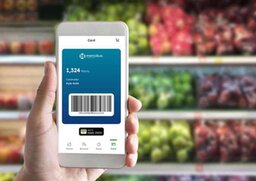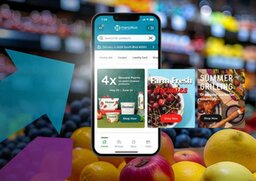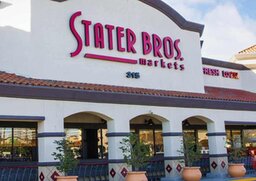It seems like an impossible mismatch.
How can local grocers possibly compete with the most dominant force in the history of retail?
Not only are Walmart’s economies of scale, marketing capabilities, and omnichannel strategies far beyond the capacity of any regional grocer, the outcomes of these advantages are regularly demonstrated in monthly, quarterly, and annual sales data that reflects the increasing market share being taken by the world’s biggest retailer.
No matter the cadence of the reports, however, grocers grapple daily with the question of how to stay competitive in an environment where the odds seem overwhelmingly against them.
Enter Mercatus—and their stated commitment to help regional grocers protect their market share.
It would be easy to dismiss the company’s ambitious promise as little more than boastful marketing if not for two critical factors:
- Mercatus sponsors much of the sales data from Brick Meets Click that the grocery retail industry relies upon, providing them unmatched insight into market trends and challenges; and
- Mercatus is not like other technology providers in the sector. They’re a technology partner to grocery retailers, offering technological solutions, strategic insight, and operational support.
This partnership-over-provider mentality is necessary, according to the company, for regional grocers to meet consumer demand for value and convenience, streamline their operations, and, yes, regain market share from Walmart, Target, Amazon, and other large retailers.
We’re ensuring grocers are competitive with mass retailers now—and that they’ll remain so in the future. That means equipping grocers with best-in-class solutions that address the full spectrum of their needs—from digital commerce platforms to innovative retail media strategies.

- Sylvain Perrier, President North America & Global COO, Mercatus

Grocers Need Tech Partners More Than Tech Providers
“The competition for grocery spending has shifted,” says Mark Fairhurst, Chief Growth Officer at Mercatus. “Traditional customer loyalty drivers are no longer enough for the modern consumer. They demand value, convenience, and a seamless ‘made for me’ shopping experience—both online and in-store.”
In developing a solution that would allow regional grocers to communicate and deliver on these modern consumer drivers—and effectively compete with larger retailers—Mercatus quickly realized that strategy or technology alone isn’t enough.
“A strong strategy is crucial,” continues Fairhurst. “And having a powerful eCommerce platform is great. But on their own, these elements aren’t enough to bridge the gap. What grocers need is a tech partner that brings strategy, technology, and support together.
Mercatus—with its industry insights, technological capability, and customized support—has positioned itself to be that partner.
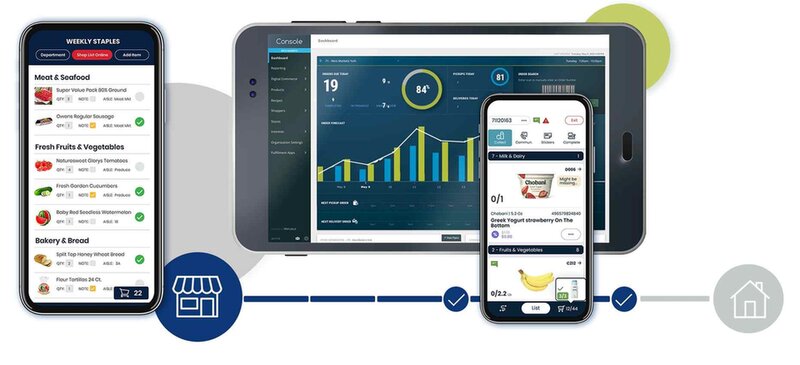
Regional grocers need to stem the tide and regain market share by leveling the playing field against mass merchants, despite these rivals having a price advantage.

- Mark Fairhurst, Chief Growth Officer, Mercatus

Earlier this summer, Fairhurst, alongside Randy Crimmins, head of AisleOne, and Lee Lambeth, VP of Retail Operations, took the stage at GroceryTech 2024 in Dallas to present a workshop on how grocery retailers can find success in a market dominated by Walmart and other retail giants.
There, Mercatus introduced their strategy: contextualized commerce.
At the highest level, contextualized commerce is the seamless integration of digital and physical retail experiences to provide personalized, high-touch service.
It uses first-party data, operational insights, and advanced personalization techniques to engage customers from initial impression to transaction, both online and in-store, ensuring a connected and relevant experience across all channels.
But in more practical terms, contextualized commerce is the roadmap grocers can follow to adapt the personal approach of their traditional service model to the digital experience. This is how grocers provide value and convenience to customers—without risking profitability.
Just as large retailers leaned into their inherent advantages to grow their share of the grocery market, contextualized commerce is the means by which grocers can offer something the likes of Walmart cannot match: a shopping experience that is convenient, deeply personalized, and tied to the high-touch, high-level in-store customer service for which local grocers are renowned.
This approach integrates the shopping experience into the daily lives of consumers, offering personalized, relevant, and seamless interactions at every touchpoint. It’s a strategy that meets customers where they are—delivering the right message, with the right offer, at the right time—and makes the shopping experience as frictionless as possible.
Best of all for grocery retailers, contextualized commerce is more than a theoretical strategy.
That changed at the beginning of the year when Mercatus announced its merger with Relationshop.
This partnership was pivotal in the development of AisleOne, Mercatus’s intelligent programmatic targeting and personalization solution, which leverages Relationshop’s advanced customer engagement technology to make contextualized commerce possible, practical, and affordable for any-sized retailer.
This practicality and affordability were further highlighted during Mercatus’s GroceryTech 2024 workshop, when presenters compared the high production costs and limited engagement of weekly print circulars to the capabilities of AisleOne.
“It’s a night-and-day comparison,” says Crimmins. “On one hand you have high-costs and limited engagement. On the other hand, you have automated processes using data-driven insights for precise customer segmentation.”
Instead of broad-spectrum promotions that often miss the mark, AisleOne allows grocers to create highly targeted marketing campaigns that go beyond mere product recommendations to deliver targeted savings based on past purchases and timed to purchase cycles.
“If a customer is buying cereal every three weeks, then they’ll receive offers on cereals every three weeks” continues Crimmins. “It’s about reaching the customer where they are.
“Regional grocers have been able to offer a version of this high-touch customer service for decades in-person and in-store, but the beauty of AisleOne is that it brings this traditional strength to the digital experience. As a result, grocers finally have something to offer customers that large retailers can’t match.”
Only a short time ago, the capabilities and benefits of contextualized commerce would have been the stuff of fantasy.
Grocery retail has long revered the possibilities of scalable personalization. Outside of large retailers, however, the requirement of complex coding, the need to hire additional staff for development work, and unifying customer data and purchase history without completely overhauling retail operations all represented insurmountable hurdles.
The Strategy: Contextualized Commerce
The Technology: AisleOne
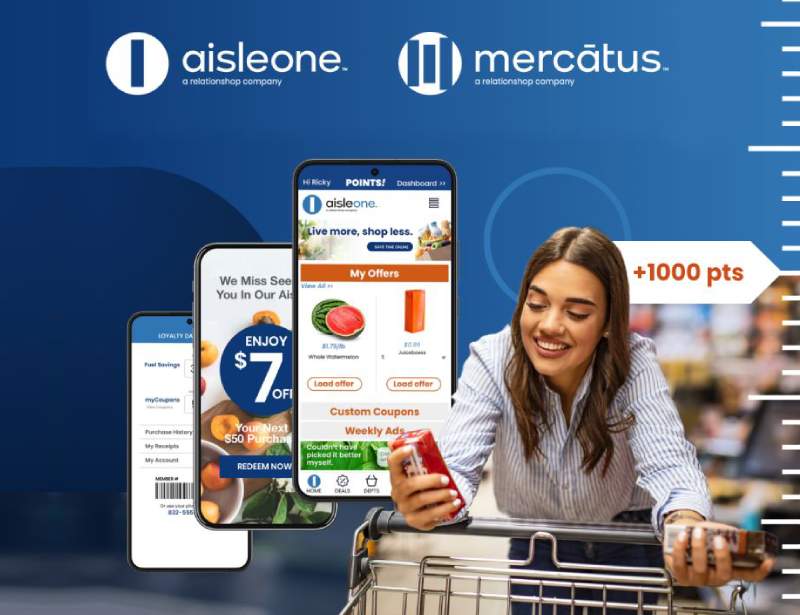
With AisleOne, every retailer can automate the delivery of personalized marketing and 1:1 targeting across all channels— without the burden of additional staff, coding or development work.


- Randy Crimmins, President, AisleOne, Mercatus
This emphasis on partnership extends beyond direct relationships with retailers to also include strategic alliances with other tech firms. Through these mutually beneficial collaborations, Mercatus is able to leverage additional technologies to provide the “more” that grocers need to compete in the modern grocery market.
Mercatus’ partnership with SwishBx is one recent example which has already resulted in enhanced retail media opportunities for grocery retailers through sponsored product sampling.
“By aligning with other industry leaders, we’re ensuring grocers are competitive with mass retailers now—and that they’ll remain so in the future,” says Sylvain Perrier, Global Chief Operating Officer at Mercatus. “That means equipping grocers with best-in-class solutions that address the full spectrum of their needs—from digital commerce platforms to innovative retail media strategies.”
It is rare for a technology company in any sector to acknowledge that success requires something more than just the technology it provides—rarer still in the retail industry to identify that need and then deliver on that understanding.
Yet, this is exactly what Mercatus is doing.
In a market where mass merchants continue to expand their influence, grocery retailers need more than just technology to compete—they need a true partner to provide a throughline from strategy to technology to support.
Mercatus offers this unique combination as a form of empowerment to retailers, so that they can meet the demands of today’s consumers, streamline their operations, and reclaim their market share from the Walmarts of the world.
This positions Mercatus as a more diverse investment opportunity for grocery retailers. By partnering with Mercatus, grocers are not only investing in technology; they are investing in a comprehensive solution that positions them for long-term success.
Whether it’s through contextualized commerce, the advanced capabilities of AisleOne, or the company’s unwavering commitment to partnership, Mercatus stands ready to help grocers overcome the challenges of today’s retail environment and seize all the opportunities of tomorrow.
Strategic Collaboration
Why Mercatus?
